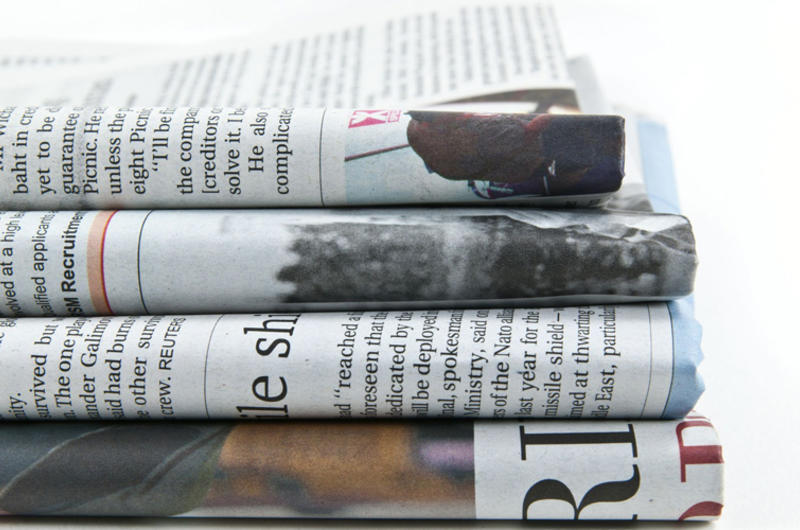

This website was created and maintained from May 2020 to May 2021 to commemorate the 75th anniversary of Stars and Stripes operations in the Pacific.
It will no longer be updated, but we encourage you to explore the site and view content we felt best illustrated Stars and Stripes' continued support of the Pacific theater since 1945.
Okinawa reversion ushers in confusion

File photo
By JIM LEA | Stars and Stripes May 15, 1972
NAHA, Okinawa — There is confusion, some open resentment, frantic hoarding, a great deal of worry, and a sprinkling of "who cares" in this Ryukyuan capital as the moment when it will become a Japanese prefectural capital begins to be measured in hours and minutes.
The politicians who forged the agreement — which ends 27 years of American rule which began with an "iron typhoon" in 1945 and will end Monday with a shrill of ship's whistle and siren — smile publicly, and privately ask, "What is there to celebrate?"
A man in the street echoes the sentiment of thousands, "I am Okinawan, I always was Okinawan and I always will be Okinawan. Monday and always I will be Okinawan."
Friday, the final day they would open their doors to trade totally in U.S. dollars, banks were jammed to near business-halting proportions as Okinawans clamored for greenbacks to salt away in coffee cans and sugar bowls. Before long, the dollars will find their way into the black market, traded for the American goods Okinawans have become used to and which they fear will soon become economically untouchable.
Monday yen, for the average Okinawan, becomes the medium of exchange.
The owner of a Koza gift shop rubs his brow and looks over his kaleidoscopic inventory of knickknacks and items from Taiwan, Hong Kong, Japan, the Philippines, Thailand.
"I've done all I can do now," he says. "I've bought all I can buy, I've converted my employees' salaries to yen — at .360 to the dollar, which is going to cost me money.
"All I can do now is wait and," he sighs, "worry about what's going to happen."
In Naha, Yukioki Ikemiyagi — who looks so much like Okinawan Chief Executive Chobyo Yara that taxi drivers ask him why he's riding in a taxi instead of a government limousine — closed the doors of his Okinawa Tobacco Co. and held a party for his 170 employees. He asked inquiring reporters not to come.
"After all, it's a 'sayonara party,' " he said. "It's like having a death in the family."
The Japan Monopoly Corp. produces the only cigarets in Japan.
At an office in Sukiran, an Okinawan slams a telephone receiver into its cradle after an hour and a half of attempting to call Naha, 12 miles away, and shouts, "Who asked for reversion anyway! "
The telephones, being assimilated into the Japanese telephone system, don't work now. Perhaps someone will get the bugs worked out of the system, perhaps not.
In Futenma, another man drops a nickel into a public phone and dials a Naha number. Someone in Nago — 40 miles north — answers. He glares at the plastic-shrouded phone beside him which, after midnight Sunday, will accept 10 yen coins, and walks away.
Speed limit signs read in kilometers, and speedometers register miles.
On Kokusai St., a department store manager watches employees pasting yen prices and dollar prices on merchandise.
"There's bound to be some problems over that," he sighs. "The Americans can use dollars but the Okinawans must use yen and with the rate of exchange fluctuating, we've got to constantly figure out prices that are fair to the customer and give us a fair profit."
His jewelry department is jammed with customers buying rings and precious stones and gold, all of which will be double or more in price after Monday.
"How the hell do I know what business will be like after Monday?" a cabaret manager in Naminoue asks. "We can't do anything but wait and see."
Last week, he and other owners and managers of Naha's 922 bars decided that, after reversion, the first 300 yen (97 cents) beer is going to cost 1,000 yen ($3.27) with entertainment tax and a new table and service charge.
In Yogi, bureaucrats in Japanese-made suits work out final details of a Monday ceremony to celebrate reversion while, a half-mile away in Matsuo, Okinawa Reversion Council members in work clothes finalize details for a Monday rally to protest it.
At 1:30 a.m., a bartender under the law who should have locked up his whiskey an hour-and-a-half ago, paused between mixing drinks.
"After Monday?" he asks. "We'll still be open at this time after Monday. Why shouldn't we? The front door's closed and nobody else can get in, but why shouldn't we serve the people who are here? Why should Monday be any different?"
His boss is less certain.
"We don't really know what will happen. After the Japanese take over, we don't know how strict they'll be. Of course, people say that the law says we're not supposed to be open now, but it hasn't been enforced.
"Anyway, `snacks' (bars which sell food) can stay open late and we serve food,"— he points to the dish of peanuts and dried beans on the counter, then moves off to welcome a new customer a hostess has brought in a back door.


